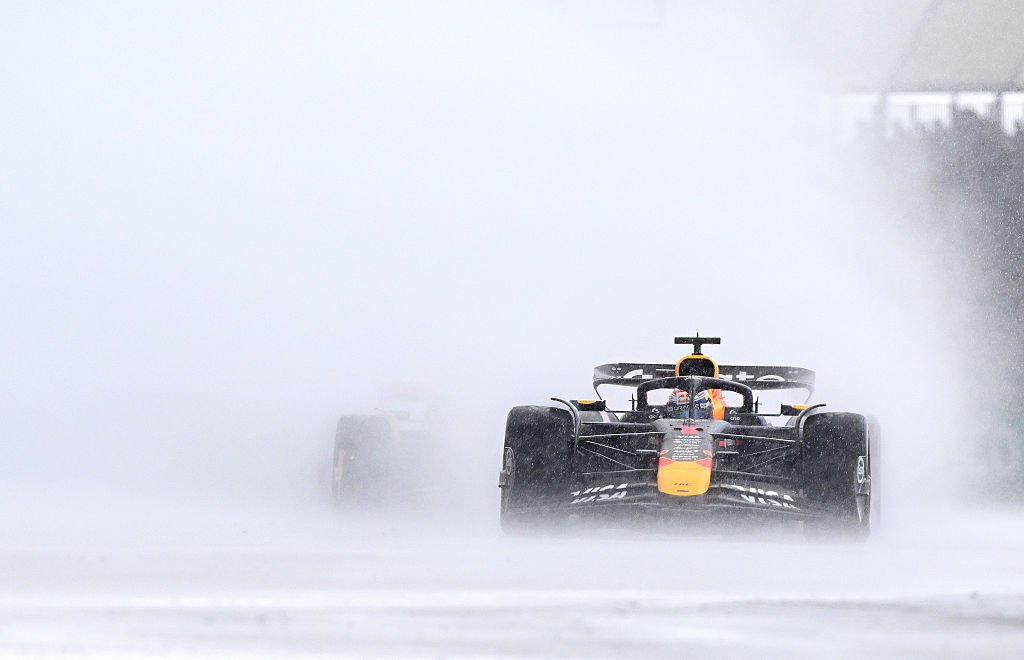Max Verstappen Reflects on Challenging British Grand Prix Performance
Max Verstappen, the reigning Formula 1 champion, recently shared his thoughts on the unexpected challenges he faced during the British Grand Prix. The race, heavily influenced by changing weather conditions, proved to be a significant test for Verstappen and his team at Red Bull Racing. The adjustments made to the car’s setup, aimed at maximizing speed, ultimately hindered performance in the rain-soaked race.
Weather Conditions Impact Performance
In the lead-up to the race, Verstappen and his team opted for a low-drag configuration during qualifying, which allowed the car to achieve impressive top speeds on the straights. This strategy paid off as Verstappen secured pole position on Saturday. However, the weather forecast took a turn for the worse overnight, leading to heavy rainfall that complicated the race dynamics. Verstappen noted that the wet conditions required a different approach, one that necessitated more downforce to maintain control and performance.
"The overnight weather forecast changed dramatically," Verstappen explained. "Up until the day before, it seemed like conditions were improving. It only rained lightly in the morning, and we anticipated a dry race. But then, out of nowhere, the forecast shifted to predict severe rain. Such unpredictability can impact our preparations significantly."
Struggles on the Wet Track
As the race commenced, the wet track conditions presented considerable challenges for all drivers, particularly those like Verstappen who were set up for lower downforce. The heavy rain that fell before and during the race meant that only the final laps could be run on slick tires, which limited opportunities for overtaking and maintaining grip.
Verstappen finished the race in fifth place after experiencing a spin during a critical moment. He admitted that the car’s setup made driving particularly difficult, especially in the changing conditions. "It was a struggle right from the start," he acknowledged. "Finding the right balance between high-speed and low-speed handling was tough. Even with a bit more downforce, I’m not sure we would have been able to compete with McLaren today."
The Challenge of Traffic
During the race, Verstappen found himself caught in traffic after his spin, which further complicated his ability to regain positions. The challenges he faced were compounded by the pace of his competitors, particularly McLaren, who appeared to have a significant advantage in the wet conditions.
"I dropped back into the points, and after my spin on the restart, it was difficult to find a way back up," Verstappen noted. "I wasn’t confident in my pace, especially when compared to McLaren. They were simply on another level today."
Despite his difficulties, Verstappen emphasized the importance of making sound strategic decisions throughout the race. His team opted to stay on intermediate tires for as long as possible, which he believes ultimately helped them secure a fifth-place finish. "We made the right calls during the race," he said. "Staying calm and waiting with the inters paid off, and in retrospect, fifth place is likely the best we could have managed given the circumstances."
Examining the Spin Incident
One notable moment during the race was Verstappen’s spin, which occurred shortly after an incident involving Oscar Piastri, who received a penalty for his actions behind the safety car. When asked if there was a connection between the two incidents, Verstappen dismissed the idea.
"I don’t see any correlation," he stated. "I was simply trying to accelerate, but the car had been challenging to handle up to that point. I was struggling to find a rhythm, and it caught me off guard on cold tires."
Conclusion: Lessons Learned from Adversity
The British Grand Prix was a stark reminder of the unpredictability of motorsport, where weather and track conditions can significantly alter the course of a race. For Verstappen, this experience will serve as an important lesson as he and his team continue to develop their car and strategies for future races. The ability to adapt to changing conditions and maintain focus amidst adversity is crucial for success in Formula 1, and Verstappen’s resilience is a testament to his skills as a driver.
As the season progresses, fans and analysts alike will be watching closely to see how Verstappen and Red Bull Racing respond to the challenges presented by their competitors and the unpredictable nature of racing. With many races still ahead, there is plenty of opportunity for Verstappen to showcase his talent and reclaim the top position in the championship standings.
